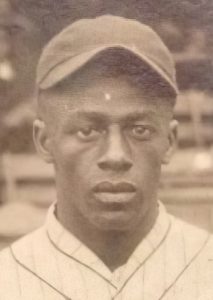
(Nov. 14, 1901-May 5, 1999). William “Bill” Owens was one of 11 children born in the neighborhood of Indianapolis to parents born into slavery. His father believed children should work yet fear of punishment could not stop Owens from spending time at the nearby baseball fields.
Owens dropped out of School No. 63 after the third grade to help support his family. In 1923, he started to look for work as a baseball player. With the Negro Leagues having formed three years earlier, he found a place as shortstop with the Washington Potamacs in 1923. In 1927, he was the starting shortstop for the Memphis Red Sox, where he batted a career-high 0.293. Known for his versatility and strong arm, Owens could be found pitching or as third baseman. Over his 12-year career, he played for numerous teams, including the and Detroit Stars (the team changed its name after moving to Detroit in 1933) for eight years.
Oftentimes the players did not receive payment for their work. Owens’ salary was $150 a month in his first season with the Potamacs. Though Black players stayed in better quality “colored hotels” when available, there were times when the players slept in their cars due to the strict segregation of hotels. Still, Owens and his teammates were able to travel the Eastern and Midwestern U.S., play in front of large crowds, and sometimes play exhibition games against teams such as Babe Ruth’s Yankees and Ty Cobb’s Tigers—games the Negro teams often won.
After retiring from baseball in 1933, Owens turned to entrepreneurship. Because of his love for pool, he opened Bill Owens Pool Hall and Bill Owens Tavern, both in the Old Southside neighborhood. He owned the former for 27 years and the latter for 20 years. Owens was often found playing and betting on pool games daily, except for Sundays, from 2 p.m. to 5 p.m. He ultimately lost his pool hall on a bet during one of these games.
Later in life, Owens realized that it was an error to drop out of school. After a visceral reaction to reading Kristena Ross’s poem The Uneducated Fool, he decided to return to finish school up to eighth grade. In 1996, State Superintendent of Instruction Suellen Reed awarded Owens an honorary GED.

Help improve this entry
Contribute information, offer corrections, suggest images.
You can also recommend new entries related to this topic.